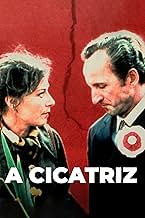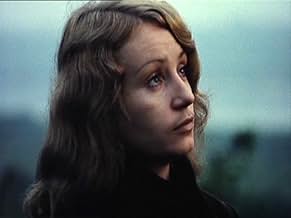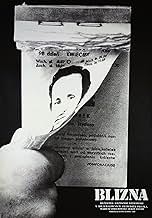Aggiungi una trama nella tua linguaWhen a political decision is made as to the location of a new large chemical factory, Stefan Bednarz is put in charge of it. This honest communist party man has to confront the local communi... Leggi tuttoWhen a political decision is made as to the location of a new large chemical factory, Stefan Bednarz is put in charge of it. This honest communist party man has to confront the local community opposing the construction.When a political decision is made as to the location of a new large chemical factory, Stefan Bednarz is put in charge of it. This honest communist party man has to confront the local community opposing the construction.
- Regia
- Sceneggiatura
- Star
- Premi
- 2 vittorie e 1 candidatura in totale
- Hania
- (as A. Holland)
- Malgosia
- (as M. Lesniewska)
- Olecko Resident
- (as A. Lamtiugina)
- Architect
- (as R. Bacciarelli)
- Participant at the Chairman's Meeting
- (as B. Ejmont)
- Olecko Resident
- (as H. Hunko)
Recensioni in evidenza
The storytelling is very slow and at times a bit jumpy. The music scenes of the movie, that are very rare, are quite bizarre, almost eerie.
I cannot recommend the movie to anyone who tend to fall asleep in slow dramas, but those who like other Kieslowsky films or documentaries of socialism, this is an interesting flick.
Like as was said for 'The Calm' (a relatively obscure work and undeservedly so), 'The Scar' doesn't have an awful lot wrong with it, it's the sort of film that does almost everything correctly and with very good skill but it's also a case of Kieslowski's style and all his components (while present and correct here) became more refined later on. 'The Calm' does lack the intensity and emotional resonance of his later work, especially with the best 'Dekalog' stories, 'The Double Life of Veronique' and 'Three Colors: Red' and 'Blue'.
Maybe it does get a touch heavy-handed in places too (then again that was not unexpected with themes as heavy and controversial as hypocrisy, compromise and contradiction) and occasionally a touch jumpy.
Again, however, as was said for 'The Calm', these nit-picks are not massive and much of 'The Scar' works very well. It is a good-looking film, as well as being beautifully shot with atmospheric use of colour to match the mood, it is gritty yet beautiful with many thoughtful and emotionally powerful images lingering long into the memory. Kieslowski's direction is quietly unobtrusive, intelligently paced and never too heavy. Very intriguing use of sound and silence, music is sparsely used but effectively intricate.
It's a thought-provoking film too, rarely rambling and makes what it has to say stick. Much of the story is sensitively told and poignant (if not as much as Kieslowski's later work), hardly cold. While deliberately paced it intrigues, engaging a good deal while also suitably challenging the viewer in spots. The themes are explored well, though there are thematically richer films from Kieslowski, and the characters (portrayed fairly bleakly but realistically) carry the story well. As ever, the complexity and nuances of the acting is to be admired.
Overall, interesting and very good early Kieslowski, though he did go on to better things later. 8/10 Bethany Cox
Kieslowski himself called the film horrible. He criticized its screenplay and categorized the film as socialist realism. He probably saw something I can never be able to see; something that only the one who made the film could see. Blizna is a realistic film about a socialist society, but socialist realism was never even close to realism. It's full of that blind optimism which Stalin so idealized. But Kieslowski's film, Blizna, is incredibly pessimistic: it shows how socialism works, how it doesn't work, how it cannot work and how it's impossible for anyone to make a change in a society like that. However, one shouldn't feel that Kieslowski was a man cheering for individualism, market economy or economic liberalism. He always called himself unpolitical and criticism for the new, capitalist Poland can be seen in his later film Three Colors: White (1993).
Blizna is a story about a corporation which decides to build a new factory in spite of ecology, or the people living in the area. They choose a man with a family to lead the project. Quickly he reveals to be a man who takes responsibility and tries to finish the project with honor. He soon starts to see the flaws of the project, where moral is only one defect. In his journey through Machiavellist politics he finds making a change incredibly difficult.
The authorities of Poland didn't ban Blizna, but they treated it badly, and basically no one saw it until the producer of The Three Colours trilogy brought a bunch of films from Kieslowski's early career to the screen. Having seen Blizna today, it might have partly lost its grip, since it is tightly tied to its own time. The 1970's can be seen in just about everything: in the style, in the narrative, in the dialog and in the costumes. This isn't a bad thing, by any means, but Blizna certainly isn't a timeless classic. But what it is, is a good description of it's time. It shows how Poland worked in the 1970's under the socialist government; how it did not worked. Kieslowski said in his interview book, Kieslowski on Kieslowski by Danusia Stok, how sad it is that no one takes responsibility on what happened during the era -- not even today.
Blizna is very pessimistic and has got inconsolable despair. It shows how impossible it was to make a change in Poland and how hopeless the era was. To put it briefly, it's a satirical description of the authorities of Poland. It is funny, political, pessimistic and very interesting for those who love Kieslowski, European art-house or are interested in history of the 20th century.
Krzysztof Kieslowski's first feature often has a documentary feel to it, but it's more of a character study. Pieczka is a technocrat, someone who knows how to get things done in terms of taking plans and allocating resources, but cannot factor in the personalities and conflicts of people into his equations. His relationship with his wife is a long-distance one; with his daughter, a criticized one. Although Kieslowski was later dissatisfied with the movie as an artifact of "social realism", and blamed the script, Pieczka's performance makes it very watchable.
Lo sapevi?
- QuizFirst ever theatrical film directed by Krzysztof Kieslowski.
- Citazioni
Stefan Bednarz: That's no way to live. You have to figure out what you want.
Stefan's Daughter: Is your life the way to live? A new job and home and friends every five years? I don't know. You've left Mom on her own. Is that a way to live?
- ConnessioniEdited into Klaps (1976)
I più visti
- How long is The Scar?Powered by Alexa
Dettagli
- Data di uscita
- Paese di origine
- Lingue
- Celebre anche come
- La cicatrice
- Luoghi delle riprese
- Aziende produttrici
- Vedi altri crediti dell’azienda su IMDbPro
Contribuisci a questa pagina


































